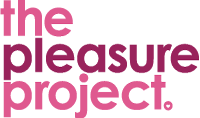“A breastfeeding workshop, pants for postpartum comfort, consent education: These are a few of the services and products featured in ads that Facebook has rejected, according to a new report from the Center for Intimacy Justice.”
The shocking statement above was included in a recent article published in the New York Times reporting on the work of the wonderful Centre for Intimacy Justice who recently published their investigation into social media platforms rejecting ads from women’s sexual health companies. After interviews with employees and leaders of companies, the report found that all of the 60 companies had, at some point, had their ads rejected on the grounds of adult content and the promotion of “adult products and services” which, by META’s (Facebook and Instagram) standards, are deemed inappropriate.
This got us thinking about our own experience with censorship. In May 2021, we knew we were being targeted specifically for our pleasure positive content. When promoting our Pleasure Fellow Scheme, we tried to create an advertisement out of the below post. However, our ad request was rejected on the grounds that ‘Ads must not promote the sale or use of adult products or services. Ads promoting sexual and reproductive health products or services, such as contraception and family planning, must be targeted to people aged 18 or over, and must not focus on sexual pleasure.’ We’ll let that sink in…
Our social media pages are dedicated to enhancing our organisational mission to promote pleasure-based sexual health which leads to sustained safer sexual behaviours and improved wellbeing – an integral part of promoting comprehensive sexual health, education and wellness. We should be shouting it from the rooftops, not censoring it in all aspects of everyday life. Promoting a sex and pleasure negative discourse on social media contributes to the stigmatisation of discussing sex and pleasure, creating a culture of inherent shame around these discourses. Instead of feeling confident discussing sex and communicating safe sex practices, individuals are taught that sex is a subject not to be discussed. Perpetuation of this can lead to an inability of individuals to be comfortable discussing sex, negotiating use of condoms, enacting safe, good sex or building healthy relationships.
We reached out to one of our Pleasure Fellows Ipsita Dwivedi to find out what her experience has been like of censorship of her feminist, pleasure positive content on Instagram. An experience that, like ours, resonates strongly with the recent findings of the Center for Intimacy Justice.
Ipsita Dwivedi
In 2020, I started facing repeated arbitrary bans from posting captions and commenting on Instagram for the first time. I was extremely confused as to why Instagram had disabled my activities but then I started observing a pattern, every time I shared my art that expressed feminist views, the fewer people engaged with my content. After speaking to a few other friends who used social media to express political views, I encountered the term, ‘Shadow Ban’. “Shadowbanning refers to when images aren’t outright removed from the platform, but instead strategically hidden from users. This strategy prevents users from searching shadow-banned hashtags and removes affected content from Instagram’s Explore page.” As a user, I had no prior knowledge regarding the shadow banning of my content nor was I given any warning.
Ever since I started posting more feminist artworks and graphics- related to my work, I have seen sharp dips in my likes, comments and reach. I noticed a stark difference in my engagement when I created an artwork talking about the Palestine issue last year. I realised the hashtags I use, #feminism #feminismart and #sexuality has limited my growth and resulted in shadow banning my account. Despite having a following of over 1500, hardly 200 people could engage with my content/ stories. My friends have constantly told me that my name is not on top of their DM list even though we chat on Instagram all the time. I realised that my art which explores different themes of bodies, unconventional political views and challenges patriarchal views, is somewhere and somehow getting censored.
I was recently interning with IPPF ESEAOR and handling their social media. Our posts got zero to 2% (approx.) engagement. We were not allowed to share ads that talked about sexual health and abortion as Instagram policies describe this as “sexually suggestive” and violates community guidelines. However, this algorithm fails to recognise the violation of community guidelines when right-wing accounts are spewing hate and using terms of rape and sexual violence against the feminist movement, Instagram does not suppress or remove those accounts. This sexist censorship and double standards have prevented many youth activists and artists to post on social media. As an artist who wants to bring social change through art, I find it extremely frustrating to not be able to reach more people due to a lack of integrity, accountability and equality on a platform that was originally created to promote creativity.
But how does the promotion of this sex-negativity on social media, and in wider society, affect how talk about sex and pleasure ourselves? When asked about communicating pleasure, Pleasure Fellow Rhiana Mills decided to explore the issue of self-censorship of sex and pleasure and her much anticipated Pleasure Project as part of the Pleasure Fellow scheme.
Rhiana Mills
My relationship to talking about sex and pleasure began in earnest at school. Sex talk was so fraught at school, laced with shame and peppered with hateful words like ‘slut’ and ‘slag’. I was both keen to stay well away from this discussion, out of fear of ridicule, but also longed to be a part of the group that were (seemingly) having and talking about sex. As I moved into young adulthood the way I spoke about sex and pleasure changed. I talked about sex as much as I could, brandishing my confidence, my unafraid mouth, like a trophy; I am a sexual being I screamed! Funnily enough the people I ought to have been talking to about sex, my sexual partners, got the silent treatment. That was the scary part for me, telling someone how I liked to receive pleasure; admitting that I knew what I liked. As a sexual health researcher, I now talk about sex every day. Constantly. When I leave the office, I often forget that the world is often still not ready to talk about sex with the comfort and familiarity I have learned. When I meet someone new, a date or a friend of my mum, I make a judgement on how truthful I should be about my job. My admissions range from ‘I work in research’ to ‘I work in sexual health research, and I want to talk more about pleasure!’. I am often hard on myself when I self-censor like this, wishing I could always be a brave advocate. Now, I am on the cusp of truly going public with regards to talking about sex and pleasure, as we prepare to launch ‘100 Stories of Pleasure’ – a collaborative pleasure positive storytelling project. I have chosen to share my pleasure story through the medium of film, and I am nervous. I am nervous to open myself up to a new chapter in my ‘talking about sex’ journey. However, these nerves come with a big dose of excitement to break through the oppression of joyful and open conversation and shout even louder about the delight of sex and pleasure!
100 Stories of Pleasure is a collaborative project co-organised by three Pleasure Fellows, Leeza Mangaldas, Ipsita Dwivedi and Rhiana Mills and is funded by DKT, Case for Her, MissChiefs. Watch this space as ‘100 stories of pleasure’ will launch in mid-February with a call for stories.
In a world where we experience so much censorship and backlash in our mission to even talk about sex, let alone sexual pleasure, pleasure activists must think of new ways to navigate this complex, controversial landscape. Pleasure activism is one of the most exciting, creative, and passionate communities to be a part of and we always love finding out about the new ways people are communicating the exciting, invaluable, multifaceted conversations on sex and relationships. An example of this is Hannah Farley-Hills’s much anticipated ‘A Play About Sex’ which explores women’s relationship with sex through real-life stories. Read more below.
A play about sex: Hannah Farley-Hills
2 years ago, I realised I didn’t have the best relationship with sex. I didn’t know what I wanted or how to talk about it. I realised lots of the women I knew were feeling similarly but we only talked about it after a drink, in hushed voices, with a lot of hesitation and embarrassment.
I decided to create some anonymous online surveys to see if these feelings were more widespread. With researchers from Manchester Met uni, we asked anyone with lived experience as a woman (regardless of their identity now, anatomy or age) about their sexual knowledge, their feelings towards sex, the impact of their background (i.e., their religion, education, family income, whether they had a disability or condition etc) and if they thought a play could help.
As a theatre maker, I like to tell stories about important socio-political themes that highlight often overlooked perspectives. The beauty of theatre’s ‘liveness’ is that it physically takes you into other worlds over and above what you can experience through TV or cinema. I wanted to try something new: to merge academic research and creativity to make a play that could be used to bring about change and help people by benefitting their relationships with sex.
Despite continuous censorship from Instagram, and thanks to a very lucky slot on BBC Radio 4’s Woman’s Hour, nearly 1000 people all over the UK and Ireland responded to my surveys. I suddenly had an inbox full of people from all walks of life wanting to tell me about their perspective on sex and how important and necessary this project was for them too.
A Play About Sex is creative activism. It is no wonder that so many women want to talk more about sex when society (education, the media and household conversations) have historically underrepresented our perspective on this and many other things. The process of theatre-making creates communities and can leave a legacy for those that have experienced it. So I am going to make a play based on the stories I have received but also with the people that have told me them. This play is about bringing our perspective to the foreground, not to downplay or overpower anyone else’s experiences, but to give us a seat at the table next to those perspectives already routinely documented in current dominant British cultural narratives. The play will be a platform for discussion, knowledge sharing, inclusive representation, and advocacy.
As pleasure and sex activists, we face many barriers to spreading our truth and inspiration. But despite this, as the creative pleasure activist community we are, we find new, innovative ways to communicate our conversations around sex and pleasure. Countering the dominant narrative of stigmatisation around sex and pleasure and instead, showing people that pleasure is an integral part of conversations around sex which we must have open and honestly. Conveying to the world that pleasure matters and we will not be silenced.
You can find out more about the work discussed in the article at the below links:
- Ipsita’s work: @ipsitadivedi | Linktree
- A play about sex: www.aplayaboutsex.com you can join the project mailing list to keep up to date on their work
- And keep an eye on our Instagram for more information on our Pleasure Fellows Rhina, Ipsita and Leeza’s ‘100 stories of pleasure’ project




